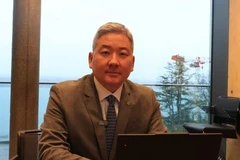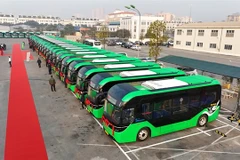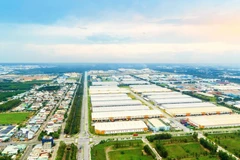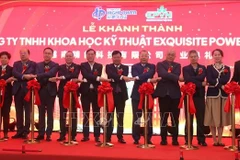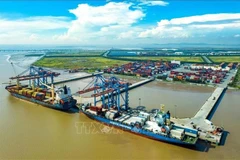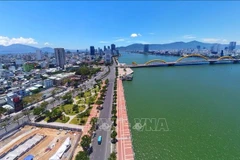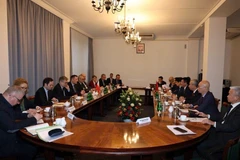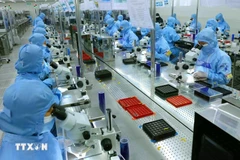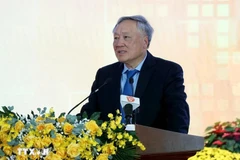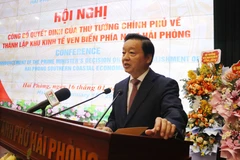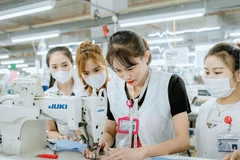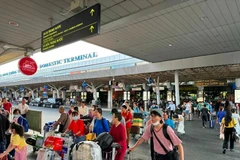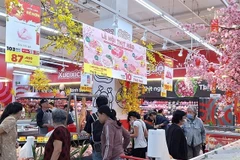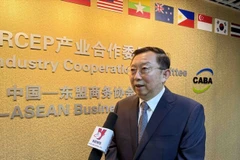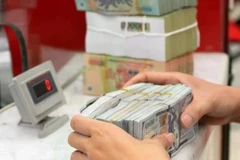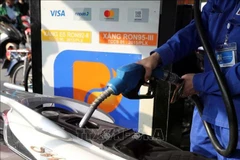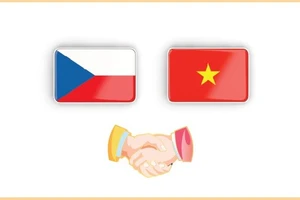Hanoi (VNA) - As many as 40 percent of foreign direct investment (FDI) enterpriseschoose to use commercial arbitration in cases of disputes, rather than going tocourt, said Phan Trong Dat, Deputy Secretary General of the VietnamInternational Arbitration Centre (VIAC).
Speakingat a seminar, entitled, “Commercial Arbitration – Increasing Confidence inForeign Direct Investment,” held in Hanoi late last week, Datsaid the FDI firms chose commercial arbitration for resolving disputes becauseof its effectiveness, and due to its helping them save time and costs.Meanwhile, court proceedings to settle disputes failed to meet FDI requirementswhen many of the judgments were unfair, causing lengthy disputes andconsiderable expenses for enterprises.
Statisticsshowed that some 24 percent of disputes were resolved at VIAC and involved FDIas one of the parties. Of these, 32 percent were in the purchasing of goods, 24percent in construction and 20 percent in leasing.
“More than ahalf of commercial arbitration cases at VIAC are resolved in foreign languages(mainly English),” he said, adding that the rate of disputes in the country hasbeen on the rise in the last three years.
VuAnh Duong, VIAC’s secretary general, said Vietnam has been considered one ofthe countries with high and stable economic growth in the region and the world.One of the reasons for the significant momentum for this growth was FDIactivities in Vietnam.
PhamManh Dung, VIAC’s arbitrator and a lawyer from Rajah and Tann LCT LawyersCompany Limited, said that by the end of 2017, Vietnam had 24,700 FDI projectswith total registered capital of 318.7 billion USD, accounting for 25 percentof the total investment in the country and more than half of the nation’s totalindustrial production value.
Dungnoted that FDI has had a large impact on Vietnam’s integration into the worldeconomy.
“Thishas been an important factor for the country’s infrastructure development andin completing legal systems to develop market mechanisms that are suitable withinternational norms,” he said.
VIAC hasstriven to become a trusted address to resolve disputes, thus helping ensurethe rights and benefits of investors seeking to invest in Vietnam.
Commercialarbitration in Vietnam has been increasingly developed to become a useful toolfor foreign investors in the country.
Disputesin investment activities have many mechanisms for resolving conflicts, such ascourts, commercial arbitration and foreign affairs. However, the courts havenot been an attractive solution, while resolving disputes through foreignaffair mechanisms have been used in certain cases.
Commercialarbitration and investment arbitration have been mostly preferred.
The disputeresolving mechanisms of commercial arbitration also faced challenges, said FanMingchao, Regional Director of Arbitration and ADR for North Asia at the International Chamber ofCommerce.
He said themajority of challenges were concerning competitiveness, as the scale ofdisputes become larger and more complicated, resulting in prolonged time, whichreduces its effectiveness.
The issuesrelating to security and transparency of arbitration procedures have also beena problem.
Security is acore feature of international arbitration, but transparency requirements arealso increasingly high. In order to address this issue, agencies have approvedand joined the transparency framework of the United Nations, he said.
The benefithas also been seen in commercial arbitration. He said that governmentsshould build a transparent arbitration procedure to control the quality ofarbitration decisions.
Theseminar focused on discussing the necessity and efficiency of commercialarbitration methods as one of the most effective ways of resolving disputesrelated to FDI enterprises.
Theseminar is divided into three sessions, with discussions on topics, such as: Anupdate on the situation of commercial arbitration in Vietnam and around theworld; Commercial Arbitration - A new element worth noting to attract foreigndirect investment; Commercial arbitrage as a useful tool for controllingbusiness risks.
Theevent is considered to be an important forum for lawyers and leading experts toshare knowledge with enterprises and help Vietnamese enterprises to betterunderstand and more effectively use commercial arbitration methods. Commercialarbitration is an effective tool in preserving capital inflows from legal risksin business investments.
Morethan 100 delegates from FDI enterprises, counterpart enterprises, potentialpartners with FDI enterprises, many prestigious lawyers, and representativesfrom State management agencies attended the seminar.-VNA



